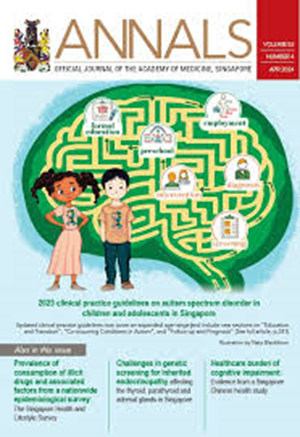Shock index: Easy to use, but can it predict outcomes following major abdominal emergency surgery?
IF 5.2
4区 医学
Q2 Medicine
引用次数: 0
Abstract
Major abdominal emergency surgery (MAES) is commonly performed for various potentially life-threatening intra-abdominal surgical conditions with high perioperative mortality of up to 45%.1 Certain patient factors (e.g. advanced age, frailty, and presence of multiple comorbidities) and disease factors (e.g. perforated viscus and intra-abdominal sepsis) have been shown to predict higher post-operative complications and mortality following MAES.2 Pre-operative risk stratification scores, such as the Portsmouth-Physiological and Operative Severity Score for the Enumeration of Mortality and Morbidity (P-POSSUM) and National Emergency Laparotomy Audit (NELA) score, have also been developed to assist clinicians and/or surgeons in decision making and patient counselling. While these scoring systems have been widely studied and validated in patients of various demographics,3 they require input of multiple variables which may be cumbersome, especially in the emergency setting. Simple bedside scoring systems remain attractive for quick risk stratification and guidance of subsequent management.休克指数:易于使用,但它能预测重大腹部急诊手术后的结果吗?
腹部大急诊手术(MAES)通常用于各种可能危及生命的腹内手术,围手术期死亡率高达45% 1某些患者因素(如高龄、虚弱和存在多种合共病)和疾病因素(如内脏穿孔和腹腔内败血症)已被证明可以预测mas术后更高的并发症和死亡率。2术前风险分层评分,如死亡率和发病率计数的朴茨茅斯生理和手术严重程度评分(P-POSSUM)和国家紧急剖腹手术审计(NELA)评分。也已开发,以协助临床医生和/或外科医生在决策和患者咨询。虽然这些评分系统已经在不同人口统计数据的患者中得到了广泛的研究和验证,但它们需要输入多个变量,这可能很麻烦,特别是在紧急情况下。简单的床边评分系统对于快速风险分层和指导后续管理仍然具有吸引力。
本文章由计算机程序翻译,如有差异,请以英文原文为准。
求助全文
约1分钟内获得全文
求助全文
来源期刊

Annals Academy of Medicine Singapore
医学-医学:内科
CiteScore
4.90
自引率
5.80%
发文量
186
审稿时长
6-12 weeks
期刊介绍:
The Annals is the official journal of the Academy of Medicine, Singapore. Established in 1972, Annals is the leading medical journal in Singapore which aims to publish novel findings from clinical research as well as medical practices that can benefit the medical community.
 求助内容:
求助内容: 应助结果提醒方式:
应助结果提醒方式:


